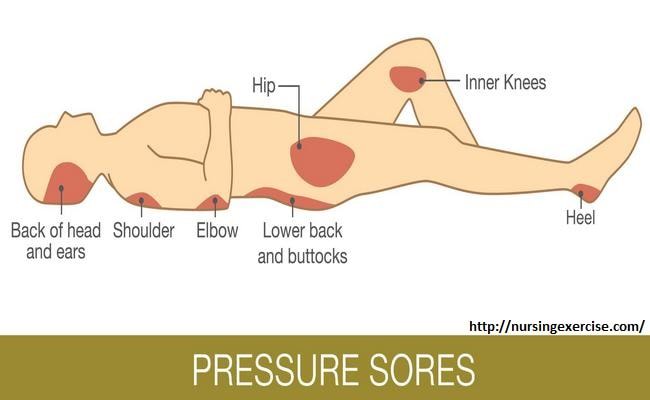When you're in a bed or a wheelchair, it's easy to slide down or slide up. It's not uncommon for patients to need someone to help them get up, or even to pull themselves up. Regardless of how you sleep, pressure sores cause your skin to be vulnerable. As a result, these ulcers can be uncomfortable, painful, and even expose your bones. In order to treat a pressure sore, you need to know the signs and symptoms to recognize its early stages.
First, remember that the symptoms of pressure sores are often caused by prolonged pressure on the same spots. The sheets on your bed can rub on the sores, and the sheets on a chair can pull the sore up. These can affect your hips, buttocks, shoulders, elbows, and even the back of your head. Once you've identified the signs of a pressure sore, you'll need to take care of it.
The first and most common symptom of a pressure sore is pain. Although the sore may be small, the discomfort it causes is a major concern. The sore may be slightly warmer than the surrounding skin. As it gets smaller, it will begin to show pink tissue. When you notice the early symptoms of pressure sores, contact your healthcare provider immediately to get treatment. You must not ignore a pressure sore.
You should take care of the affected area to avoid developing further ulcers. Keep the skin clean with mild soap and warm water and apply moisturizer to reduce dryness. You should also avoid massaging the area because this can lead to more damage. Additionally, try to stay away from donut- and ring-shaped cushions, which restrict blood flow to the area. If your pressure sore becomes open or if it starts to blister, call your healthcare provider.
The most common type of pressure sores is an open sore that looks pink and is warm to the touch. A stage one pressure sore will be warm to the touch and look pink or purple. In extreme cases, it will look like a crater. The sores will become larger and bleed more. The sores will usually be inflamed. You can also have an open sore that has blistered.

In addition to drinking plenty of fluids and avoiding prolonged bed rest, people with pressure sores need to be aware of their symptoms. If a person has a shallow sore, they should move their body as often as possible to prevent the skin from breaking. In severe cases, a patient should change positions every two hours. If the wound is deep, a doctor may perform a surgical procedure to seal it and reduce the risk of infection.
If you're experiencing pressure sores symptoms, it's important to check your skin often. If you notice any changes, it's important to contact your healthcare provider as soon as possible. If you're concerned about your sore, you should call your healthcare provider and report it immediately. He or she will be able to treat the problem right away. If you're unsure, you should contact the nursing home or the agency that is caring for you.
If you're at risk for developing a pressure sore, it's crucial to check your skin frequently. If you notice a sore that isn't getting any better, it's a good idea to contact your healthcare provider and get it checked. They can identify pressure sores and help you manage them. They can also give you advice on how to avoid the outbreak. And they'll know how to help you stay healthy and prevent them!
Despite what you might think, bedsores are a serious condition. Depending on the severity, it can be difficult to identify, so it's important to seek medical attention as soon as possible. Once you find an ulcer, it's important to keep a close eye on it to prevent further complications. If this causes you any discomfort, you should see your doctor as soon as possible.
The symptoms of pressure ulcers depend on the type of pressure ulcer. A primary care doctor can often treat the most common types of ulcers, but if the ulcers are more severe, they may need to be treated by a specialist. Some types of pressure sores may need to be treated by a doctor. A primary care physician can treat some types of pressure ulcers, but other types may require a specialist. Read more about pressure ulcer prevention at healthremediesshop.com/.
